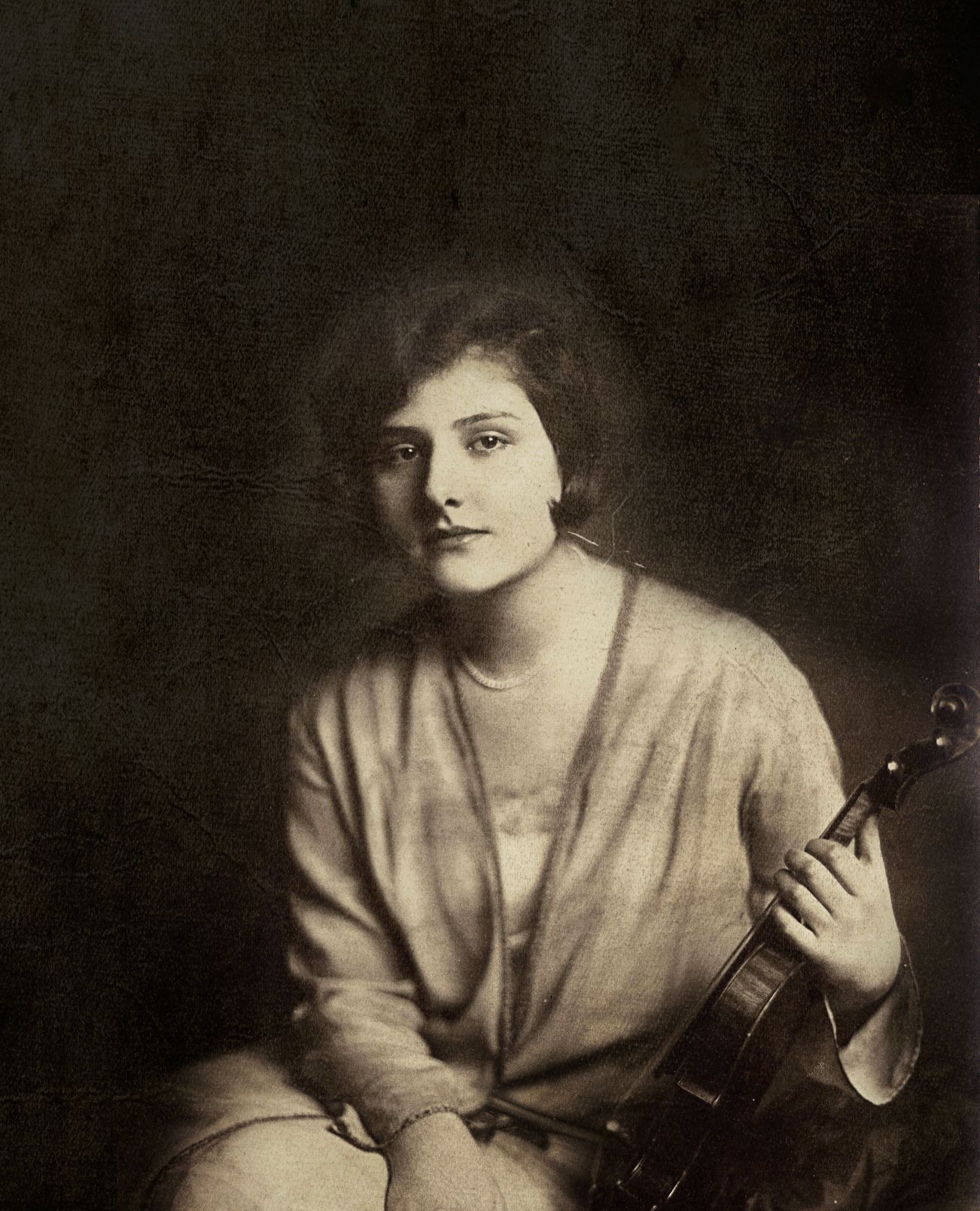A program in memory of the violinist Alma Rosé on Deutschlandfunk
Corinna Harfouch, recitation
Latica Honda-Rosenberg, violin
Hideyo Harada, piano
A word-sound collage with works by Bach, Mozart, Beethoven, Schubert, Chopin, Schumann, Brahms, Franck, Dvořák, Sarasate, Janáček, Monti, Kreisler, and Bloch
Alma Rosé: a name to remember. And one that will forever be associated with a courageous woman and a fascinating artist. Her biography reflects the humanistic potency inherent in music – and how music may, at the same time, be misused by monstrous powers. Alma Rosé was born in 1906. Her father was the celebrated violinist Arnold Rosé, a member of the Vienna Philharmonic; her uncle was Gustav Mahler. Her own career as a violinist began auspiciously. But her Jewish ancestry soon spelled disaster: Alma Rosé died in Auschwitz in 1944. She shared the fate of 6 million Jews. But there is much more to the life story of Alma Rosé: essential as well to her biography is the way she used music to send a signal, to create a brief respite in a hellish place, engendering a sense of hope. Following her internment, Alma Rosé became the director of the women’s orchestra in Auschwitz, a position that allowed her to protect her fellow inmates. The musicians of the ensemble were spared by the machinery of death.
Based on letters, eyewitnesses, and the sounds of the musical works performed by this great artist, Corinna Harfouch, Latica Honda-Rosenberg, and Hideyo Harada have composed a musical biography. In this in-depth program, the Trio illuminate Alma Rosé’s life while offering a captivating concert experience that does not flinch from addressing difficult topics of continuing relevance.
